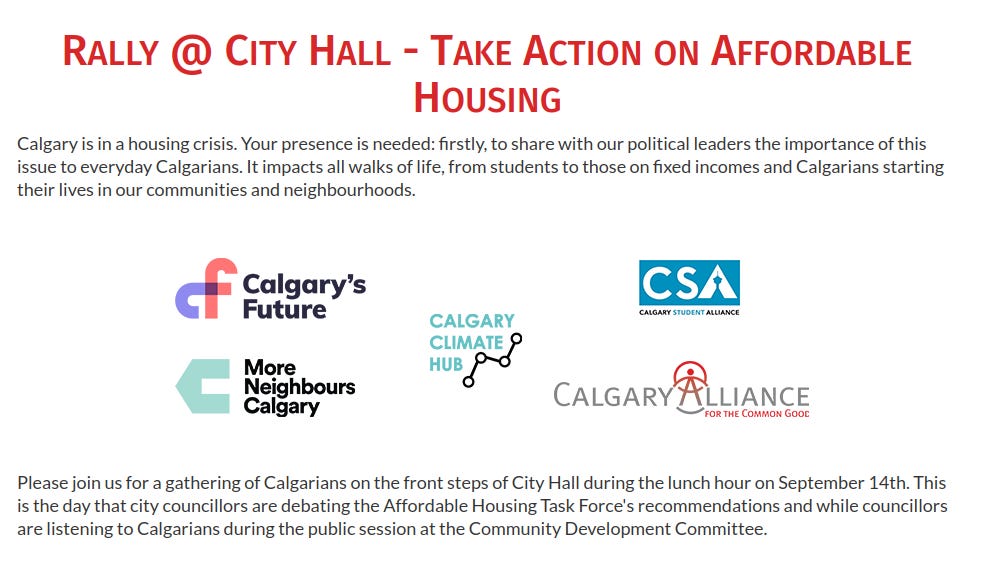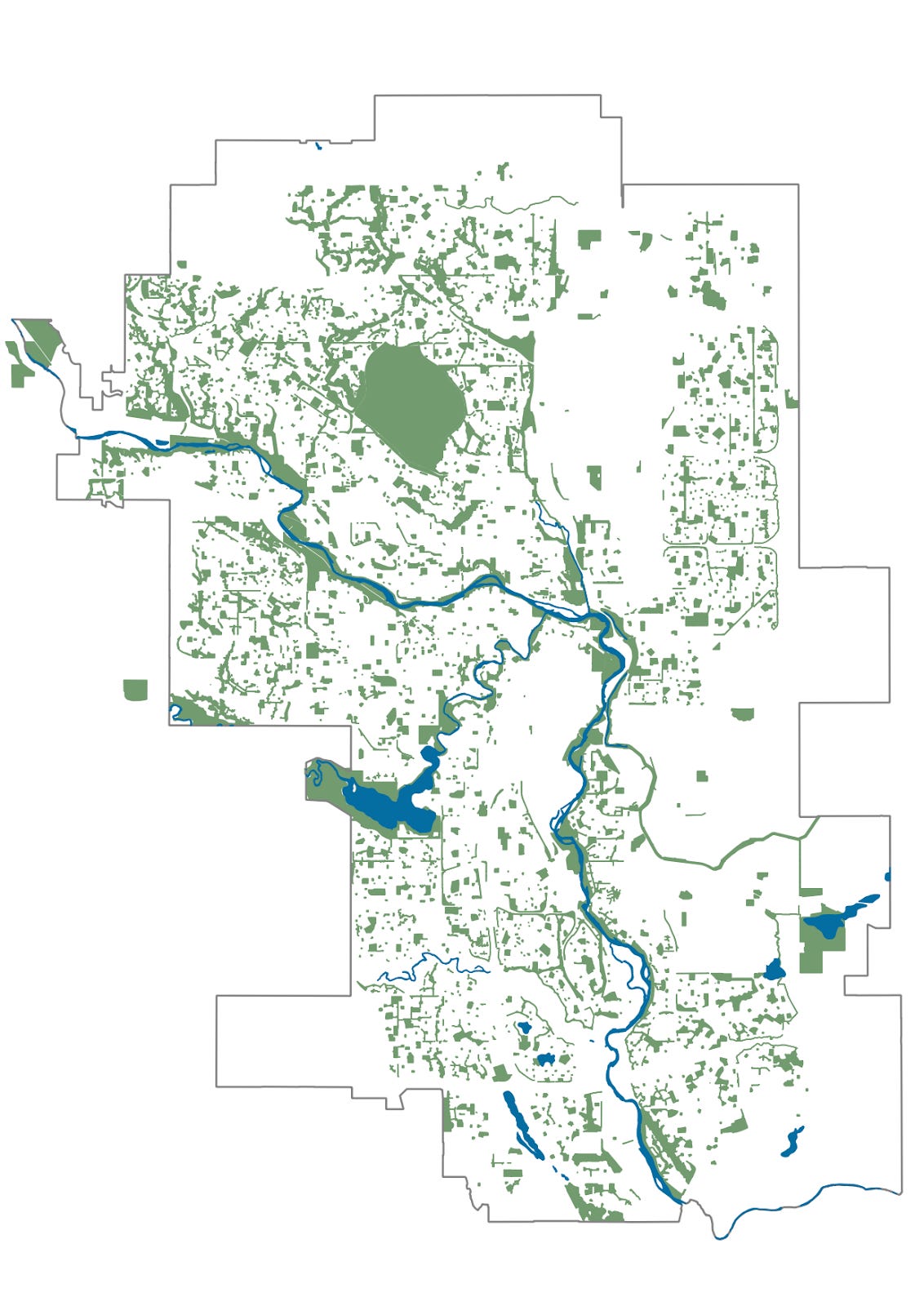The Housing Strategy is Also a Climate Strategy
Learn how the housing strategy is good for biodiversity and the climate. Plus, join us at lunch on the 14th for a rally!
Howdy Neighbour!
Next Tuesday, September 14 council will convene and hear from Calgarians about the housing strategy. If you haven’t signed up to speak and would like to, it’s not too late. Just fill out the public submission form. If you’d like some tips or talking points, let us know in our Discord server - we’re a friendly bunch!
Also, we’re having a rally! Join us on the front steps of City Hall at 12:15pm on the 14th to show your support. We’re partnering with an excellent group of friends and advocates, you can learn more abou tthe rally from our friends at Calgary Alliance for the Common Good.
Today, we want to talk about how the Housing Strategy is important for Calgary’s biodiversity and for fighting climate change. Nathaniel Schmidt brings us an introduction.
The Housing Strategy is Also a Climate Strategy
by Nathaniel Schmidt
Affordable, accessible housing of all shapes and sizes with access to services is a great choice for the diversity of people that live in our cities. But did you know it’s also a great choice for biodiversity and climate change?
Many cities are built in areas of high biodiversity, providing an abundance of food and arable land. Take one look at a map and Calgary is no exception.
We share our home with two rivers and the rich habitat of their river valleys along with aspen parkland, grassland and countless species of flora and fauna. Finding ourselves at the confluence of these ecosystems means we are surrounded by valuable habitat that forms an important part of Alberta’s natural environment.
Our choice to build out instead of up has put immense pressure on these habitats and the species they support.
This problem isn’t unique to Calgary. Look at any major city around the world and you’re likely to find a river, lake, or ocean and the valuable ecosystems they support. You’ll also find them struggling to find a balance between human development and ecological preservation.
As humans continue to move to cities in huge numbers, the way we build is crucial to addressing biodiversity collapse and catastrophic climate change.
The International Union for the Conservation of Nature said the following about city design:
Well-managed urban areas can support high levels of biodiversity, and many cities are already located within globally recognised “biodiversity hotspots”.
According to the IUCN, cities with healthy biodiversity see a list of benefits, including improvements to air quality, mental health, climate resilience and even the economy.
The United Nations Human Settlements Programme (UN Habitat) echoes the IUCN in finding a connection between city building and a healthier environment. A UN Habitat study found that worldwide, our land consumption rate is more than double our urban population growth rate. The effect is that our restoration of ecosystems can’t keep up with the land we consume.
The study suggests that by building more compact cities, we can preserve areas of high ecological value while providing people with healthier lives. This can be accomplished through effective regulations, sufficient financing and proactive effort.
But if this isn’t enough, urban planner Ostap Fedynets expertly and effectively points out in this Twitter thread that providing more homes to more people using less space drastically decreases our carbon emissions and can put a huge dent in the fight against climate change.
No matter how you look at it, allowing more homes of all types in our established areas and making them accessible to people of all backgrounds is a huge step towards making Calgary a healthier place for all living beings.
The Housing Task Force is an important piece in this puzzle and is a huge step forward in balancing development and preserving the ecosystems we have left in Calgary. We all need space to thrive. Rivers need room to flow, plants need land to grow, animals need freedom to roam, and even us humans need nature to stay healthy.





